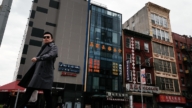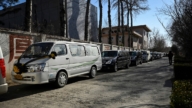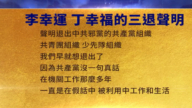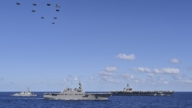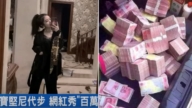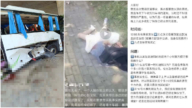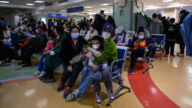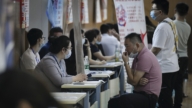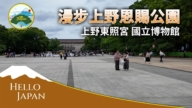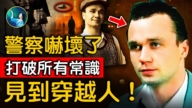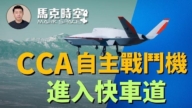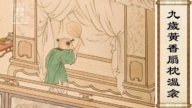【新唐人2014年04月04日訊】大陸七大軍區的司令,一天之內齊刷刷的向中共最高層表達忠心,整齊得賽過木偶。這35年才一遇的好戲,頓時吸引了輿論的眼球。學者和專家們分析,中共現任領導人為鞏固軍隊的權力,需要把軍隊一大批人清洗出去。請看他們的分析。
隸屬中共軍隊的《解放軍報》,4月2號用兩版篇幅,發表了18位現役上將或中將支持中共國家主席、軍委主席習近平的文章。這一內容,2號晚間登上了大陸各大媒體的頭條。
宣誓效忠的有空軍司令馬曉天,和陸軍七大軍區的司令,另外還包括總參謀部、總政治部、總後勤部,和總裝備部等四總部,以及武警、海軍、第二炮兵、國防大學、軍事科學院、國防科學技術大學的最高領導。
香港媒體報導說,這是從中共元老鄧小平1970年代末復出後,35年來的首次。
而美國《紐約時報》稍早報導了:習近平反腐運動觸及解放軍高級將領,包括曾經擔任軍委副主席的徐才厚上將。其中提到:3月31號被提起公訴的原總後勤部副部長谷俊山「 供出了幾乎所有人」。
據報導,習近平曾在內部講話中怒斥「谷俊山現象」的蔓延,他誓言要除掉「大大小小的谷俊山」。而中共軍隊的「防化學院」前副院長徐光裕少將也表示,這次將領的高調表態與軍內反貪腐有關,也可能與軍方將裁員、全面深化改革遇到困難有關。
結合3月中旬習近平兼任「深化國防和軍隊改革領導小組」組長的職務,香港《開放》雜誌編輯蔡詠梅分析,中共軍中要清洗一批將領。
香港《開放》雜誌編輯蔡詠梅:「我想主要還是涉及軍隊的問題,整軍嘛!因為谷俊山背後還有徐才厚,甚至還一大批是軍頭,肯定是軍隊的一大批人要清洗出去,而且這些勢力也是很大的,所以他需要每個人都要表態嘛!他想鞏固軍隊權力。」
歷史學者、海外民主人士劉因全:「因為部隊上的這一些人盤根錯節,有很大的力量。谷俊山供出來的一些人,包括徐才厚、郭廷安,都有可能會被雙規。一旦軍頭們宣誓了權力以後,能嚇唬一些人。」
香港《南華早報》日前引用軍中兩個消息來源報導說,徐才厚因癌症晚期,北京才放棄了對他的貪腐調查。外界評價,中共是為了減少對政權的衝擊,想讓徐才厚像患癌死去的原上海市長黃菊一樣「自生自滅」。
據英國《金融時報》的最新報導,三位知情人士披露,中共前黨魁江澤民3月向習近平發出了明確的信號,他說:「這場反腐敗運動的步伐不能搞得太快。」而徐才厚曾被江澤民視為「 軍中愛將」。有評論指說:徐是江在軍中的代言人。
蔡詠梅認為,軍中現任將領為自保也急於站隊。
蔡詠梅:「他這些軍頭也有恐懼感,他們有的怕被牽連,所以他們也急於效忠。這個是雙方的。絕對會是大批的軍方的自身要劃清界限、自保嘛,所以他們也需要表態,跟那個對象切割了。」
另一方面,在七大軍頭效忠的前幾天,也就是習近平正在歐洲訪問期間,廣東茂名上萬老百姓因為抗議芳烴PX項目落戶茂名市,而舉行大遊行,並到市政府前靜坐示威。地方當局調來坦克、野戰軍鎮壓,視頻中可以清楚看到軍人開槍射擊。香港《太陽報》報導,已知有15人死亡,300多人受傷。
類似的抗議曾發生在大連、廈門和昆明,當局也都以鎮壓收場。觀察人士指出,這是25年來,中共1989年「六四屠殺」後,第一次公開動用坦克和槍支鎮壓民眾,也是3月1號雲南「昆明砍人事件」後,中國又一次令全世界震驚的災難。
劉因全:「這個處理的辦法太反常。因為按照正常的處理方法,不應該故意的激化矛盾,故意的這樣做有可能要抹黑習政權。這是一個示威,還是和平示威,為甚麼要去動用坦克?為甚麼要開槍?我覺得直接下令的這個人是故意的激化矛盾。」
海外有評論說,無論是中共軍方的高調效忠,還是發生在民間的流血鎮壓,都說明中共內部混亂,政權岌岌可危。
採訪編輯/唐音 後製/陳建銘
Seven Regional Military Commanders Swear Loyalty to Xi Jinping.
Seven regional military commanders in the People’s
Liberation Army (PLA) have voiced loyalty to the Chinese
Communist Party (CCP) leadership on the same day.
This rare act for the first time in 35 years
has suddenly attracted public attention.
Scholars and experts analyze that this is due to the
current leader purge to consolidate it’s power in the army.
Let’s see our report.
On April 2, PLA Daily published a lengthy report on
18 active PLA active generals and lieutenant generals.
They have vowed their support to Chinese President,
Chairman of the Central Military Commission Xi Jinping.
It became headline news in all media that evening.
Those who expressed their loyalty include;
Army Air Force General Ma Xiaotian;
seven military regions commanders; leaders of
the General Staff, General Political Department,
General Logistics Department and
General Armament Department;
as well as the armed police, navy, Second Artillery Corps,
National Defense University, Academy of Military Sciences,
and National Defense Science and Technology University.
Hong Kong media reported that it was the
first time in 35 years after the Deng Xiaoping
resurfaced as leader in the late 1970s.
The New York Times reported that Xi Jinping’s anti-
corruption movement has touched senior PLA officers.
This includes former Vice-Chairman of the
Central Military Commission, Xu Caihou.
It reported that Gu Junshan, former Deputy Chief
of the PLA General Logistics department, “gave up
information on just about everyone" in the investigation.
“In internal speeches, Mr. Xi has railed against a
wider ‘Gu Junshan phenomenon’ of military corruption"
Xi has threatened to bring down
both “large and small Gu Junshans".
The former VP of the PLA Institute of Chemical
Defense, Major General Xu Guangyu, commented.
The high-profile declaration of PLA leaders
is related to the military anti-corruption.
It is also related to difficulties in layoffs and a movement
to comprehensively deepen reforms in the army.
Cai Yongmei, Hong Kong’s Open Magazine Editor
analyzes the CCP army will purge a group of generals.
It will combine Xi Jinping’s role as the leader of “deepening
national defense and army reforms" as of mid-March.
Cai Yongmei, Open Magazine editor: “I think
the main target is the army, to rectify the army.
There is more than just Xu Caihou behind Gu Junshan.
There are many powerful people in the army.
So he needs everyone to take his stance in
order to consolidate his power in the military."
Liu Yinquan, historian and overseas democracy activist:
“There are deep-rooted and powerful forces in the military.
Those who were given up by Gu Junshan, such Xu Caihou,
and Guo Tingan are likely to be detained and interrogated.
The oath of those military heads will threaten certain people.
Hong Kong’s South China Morning
Post cited two military sources.
They suggest that Beijing gave up the investigation of
corruption on Xu Caihou because he has advanced cancer.
It is analyzed that the CCP wanted Xu Caihou to
run his own course, like former Shanghai Mayor
Huang Ju, to reduce the impact on the regime."
According to the latest report in the Financial Times,
sources said former CCP leader Jiang Zemin
sent a clear signal in March to Xi Jinping.
This was to rein in his anti-corruption campaign.
Xu Caihou was regarded as a favorable army crony
of Jiang, and as Jiang’s spokesman in the military.
Cai Yongmei believes that the military leaders are
eager to take their stance to secure themselves.
Cai Yongmei: “The military heads are eager
to show their loyalty in fear of being implicated.
That stands for both sides.
Surely, lots of military forces will draw a line, and have a
clear line with opponents in order to protect themselves."
A few days before the seven military commanders stated
their loyalty, tens of thousands of people demonstrated
and marched in front of the municipal government, against
a petrochemical project in Maoming, Guangdong Province.
This happened as Xi Jinping was visiting Europe.
Local Maoming authorities dispatched tanks and
field army to violently crackdown on the protest.
Video footage clearly shows soldiers firing.
Based in Hong Kong, the Sun reported that as a
result, the crackdown has killed 15 and injured 300.
The authorities also suppressed similar
protests in Dalian, Xiamen and Kunming.
Observers say this was one of the few times tanks
and firearms have been used to suppress protests
in 25 years, since the 1989 Tiananmen massacre.
This was another shocking disaster in China
after the March 1 Kunming stabbing incident.
Liu Yinquan: “This is very unusual. Typically, they would not
intensify the conflict, which could discredit Xi’s leadership.
Why did they use tanks on a peaceful
demonstration? Why did they open fire?
I feel the commander was deliberately intensifying the conflict."
Overseas critics analyze that both high-profile Chinese
military allegiance and bloody repression of protestors
have only further demonstrated internal chaos in the CCP.
Interview & Edit/Tang Yin Post-Production/Chen Jianming




